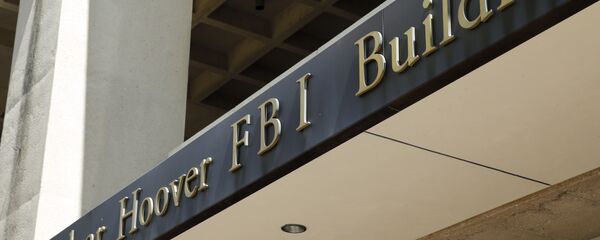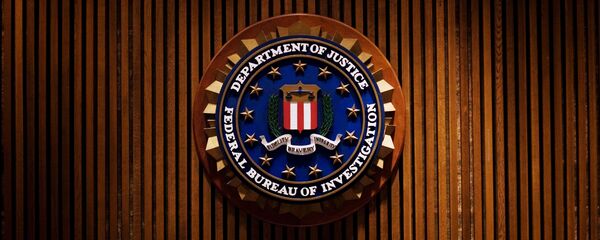Speaking at the Council on Foreign Relations (CFR) in Washington DC last month, Wray stated that China represents a "multi-layered" threat to the US.
"Economic espionage dominates our counter-intelligence program today," warned Wray.
"More than ever, adversaries target our nation's assets, our information and ideas, our innovation, our research and development, our technology. And no country poses a broader, more severe intelligence collection threat than China," the top domestic US law-enforcement official suggested.
Following Wray's warnings, the Chinese newspaper Global Times ran an editorial stating that Wray's comments reveal an "undisguised contempt for the whole of Chinese society."
"People like Wray emanate the kind of vulgarity shown by history's career low-lifes. That vulgarity floods the US administration today," the editorial observed.
Wray's comments come as US and Chinese trade officials plan another round of trade talks in Washington DC on May 8.
China and the United States have been engaged in a trade row since US President Donald Trump June 2018 announcement that $50 billion worth of Chinese goods would be subject to 25 percent tariffs, in a bid to fix the US-Chinese trade deficit. Since then, several rounds of trade tariffs have been exchanged by the two countries.
Under the Trump administration, China has also come under increasing criticism over accusations of widespread theft of intellectual property and economic espionage, with Chinese businesses accused of stealing trade secrets from foreign companies.
According to Jeff Lanza, a former FBI official who recently spoke to the South China Morning Post (SCMP), Wray's statements were "most likely based on actual FBI investigations and cases — some of them have borne out in the news as well — [and] indictments that have been made public regarding Chinese attempts to steal information."
In addition, former FBI veteran James Wedick told the SCMP that scrutinizing Chinese espionage activities should be a priority, claiming that China took advantage of a "void" created by a focus on counterterrorism programs following the September 11 attacks.
However, Wray's recent public remarks on China are just the latest of many since he became FBI director in August 2017, replacing then-FBI director James Comey.
In a February 2018 Senate hearing, Wray claimed that threats posed by China require a "whole-of-society response" by the US.
"One of the things we're trying to do is view the China threat as not just a whole-of-government threat but a whole-of-society threat on their end, and I think it's going to take a whole-of-society response by us," Wray said during the Senate hearing, the SCMP reported.
At another hearing eight months later, Wray claimed that China poses an even bigger to the US than Russia.
"Russia is in many ways fighting to stay relevant after the fall of the Soviet Union. They're fighting today's fight," he said commenting on Russia's alleged interference in the 2016 presidential elections.
"China is fighting tomorrow's fight, and the day after tomorrow, and the day after that […] And it affects every sector of our economy, every state in the country, and just about every aspect of what we hold dear," he avowed.
Following Wray's elevation to director of the FBI, the agency has prohibited Chinese academics accused of having links to Chinese intelligence agencies from visiting the US.
According to a report released last month by the New York Times, the FBI's counterintelligence operation against China in the last year has resulted in as many as 30 Chinese professors, heads of academics institutes and experts seeing their visas to the US cancelled or put on administrative review.
In 2018, the Trump administration warned biomedical researchers at American universities to keep an eye out for Chinese spies pretending to be graduate students.
Susan Shirk, chair of the 21st Century China Center at the University of California San Diego, criticized the visa ban, stating that intellectuals with a sophisticated understanding of how the US works are being barred from entering the country.
"These people are among the most sophisticated in how the US works and are some of the strongest advocates of good relations with the United States," Shirk told the New York Times.
"We are alienating some of America's best friends in China," she added.






